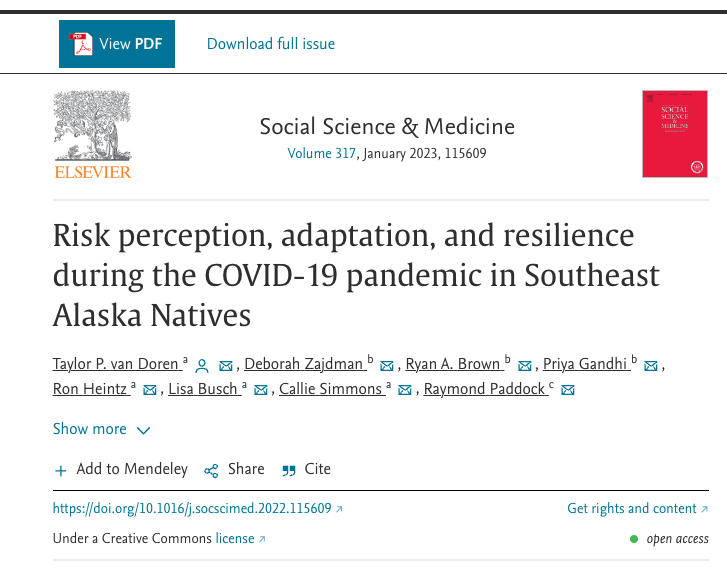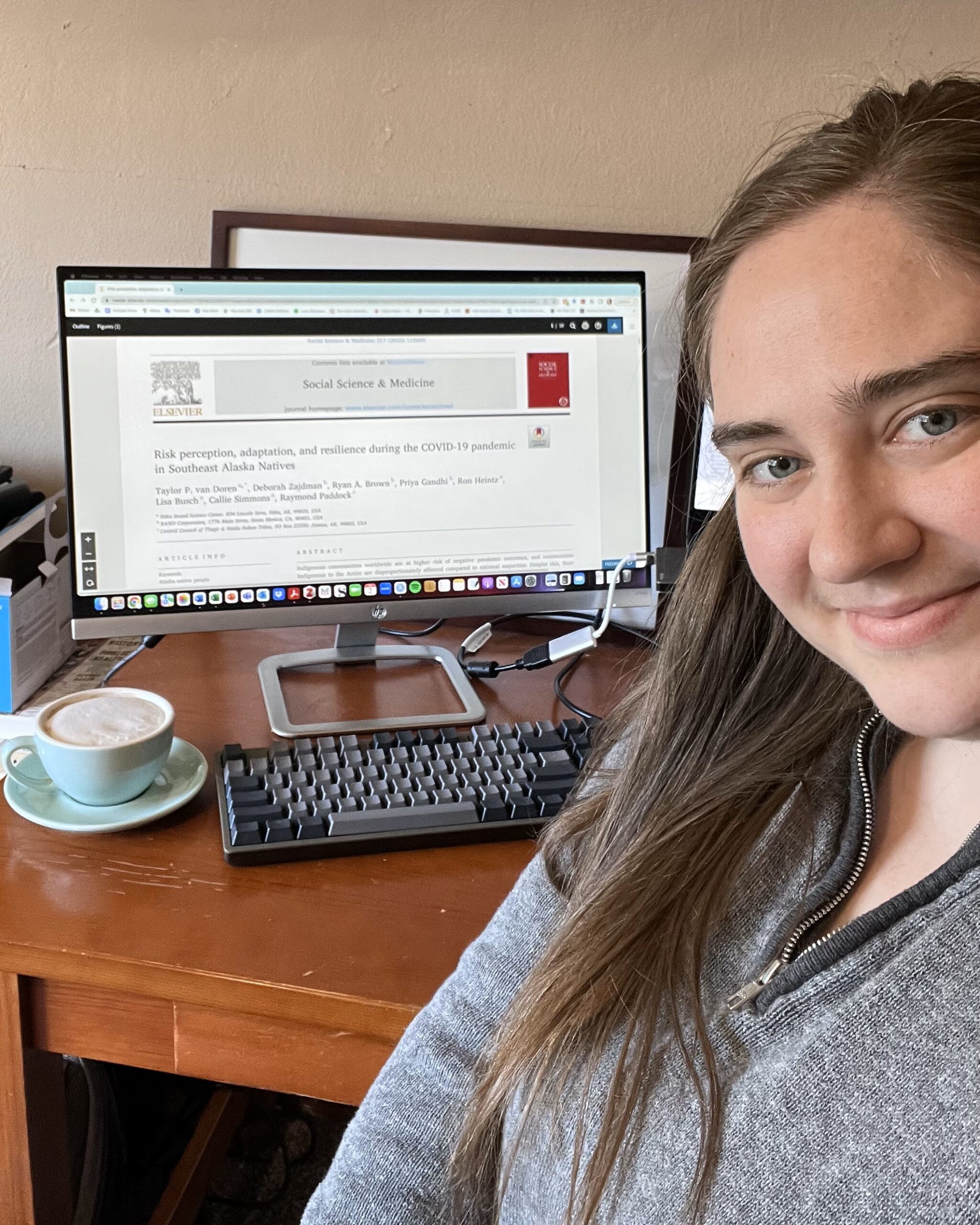
COVID-19, News, Research
COVID-19, News, Research
COVID-19, News, Research
Sitka Science produces major publishment!

Blog by Taylor P. van Doren![]()
![]()
The ongoing COVID-19 research project at the Sitka Sound Science Center has produced its first major publication, now available open access in Social Science & Medicine! The article, titled “Risk perception, adaptation, and resilience during the COVID-19 pandemic in Southeast Alaska Natives” drew on 22 in-depth interviews with Alaska Native participants in three island communities: Sitka, Hoonah, and Kake. This project has been ongoing since spring 2020 with funding from the National Science Foundation Arctic Social Sciences Program and is in collaboration with the Central Council of Tlingit & Haida Indian Tribes of Alaska and the RAND Corporation.
Two key questions that this research asked were:
- How did Alaska Native people in Southeast Alaska perceive the risks of the COVID-19 pandemic?
- How did they mitigate/alleviate those risks?
The interview data were extremely powerful to investigate these questions for two primary reasons: first, pandemic research does not often consider the lived experiences of Indigenous peoples in any part of the world; and second, what we know about pandemic outcomes in Indigenous groups come from numerical data and can ultimately limit our understanding. This interview-based research elevated Alaska Native individuals’ experiences from their own perspectives so we can learn about how they protected themselves and their communities from the COVID-19 pandemic. Their words are significant contributions to our cumulative knowledge of pandemics!
Through this research journey, we learned a lot about how Southeast Alaska Native people drew on historical experiences and traditional knowledge of the 1918 influenza pandemic. One interviewee from Kake stated that the knowledge of the historical pandemic was a “motivator to take this one seriously” and was a reminder of their communities’ resilience. Many interviewees also highlighted that rapid ecological change, like melting glaciers and smaller salmon runs, were often more in the forefront of their minds than COVID-19.
One of the biggest takeaways from this research was the strong emphasis on community-centered protection rather than individual protection. All participants described the importance of protecting and sharing traditional knowledge and elevated the needs of their community above the needs of themselves. This is likely one of the most important reasons why Alaska Native communities in Southeast Alaska were able to weather the pandemic relatively smoothly.
The results described here are one part of a larger research project, and we are excited to share more results in other new papers soon!
The authors of the article would like to sincerely thank the anonymous individuals who participated in the interviews for this study and contributed their time, knowledge, opinions, and ideas. View the article here:https://doi.org/10.1016/j.socscimed.2022.115609
